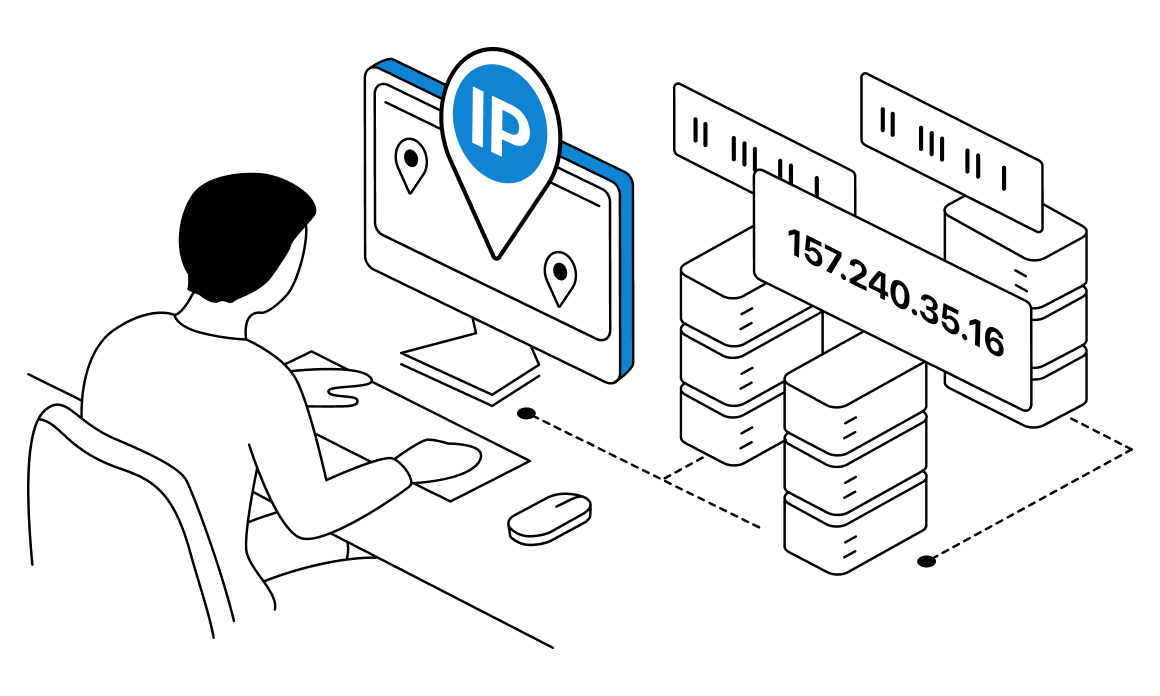The digital age is the period in which the web network and its intricate webs are the beating heart of businesses. The word “digitalization,” which was once a mere buzzword, has become the basis that powers and sustains modern business. Amidst the vast expanse of the digital universe is an essential pillar of the infrastructure that is responsible for the seamless connectivity and operations we’ve come to depend on: the dynamism of proxies and IP addresses.
Understanding the workings and implications of IP addresses and proxies is vital for anyone trying to navigate the complex digital world. These components are usually hidden behind the scenes but play a crucial role in helping businesses achieve greater digital efficiency and security. Finding out the secrets behind IP addresses and proxy servers can aid entrepreneurs or digital enthusiast to improve your company’s digital operations.
What is the difference between IP addresses and proxy servers?
The core of our digital infrastructure is IP addresses and proxies which have a significant impact on how we conduct online transactions and communicate. An IP address is comparable to a digital fingerprint, an unique identifier for every device connected internet. They facilitate seamless data and communication via the internet. This guarantees that data will reach its destination in a timely manner and swiftly.
On the other hand proxy servers function as intermediaries for your device and the internet. A proxy server functions as a buffer whenever you visit a site. It catches the requests you make and passes them on to the destination. The process hides your IP while also improving security and privacy, acting as a barrier against cyber-attacks.
Modern Business and Proxies
Proxy services are now indispensable instruments in modern-day business. They enhance efficiency and security. Proxy servers provide secure and anonymous web browsing. By concealing IP addresses, proxy servers protect confidential business data and communications from cyber-attacks and eavesdroppers.
Proxy servers enable businesses to handle online operations and optimize them efficiently. Proxy servers are configured to block content, filter out dangerous websites or prioritize critical applications, ensuring that employees have an efficient and smooth online experience.
If you are a business operating on a global scale, proxy servers allow you of accessing content that is restricted by region and gain market insight across different geographical locations. This access helps in conducting market research, competitive analysis, and crafting targeted marketing strategies, all critical aspects of modern business growth and success.
IP Addresses in Modern Business
IP addresses play a crucial role in modern business that is more than just identification. IP addresses are crucial to communicate, share data, and connectivity in the digital world. Each online transaction, web visit, email or cloud-based operations depends on IP addresses.
Data is among the most important assets of the modern business world. IP addresses allow businesses to monitor consumer behavior, analyse market trends and customize their services to meet customer demands. This data-driven approach does not just improve customer satisfaction but also aids in making informed decisions that will allow for steady growth.
Enhancing Security, Efficiency, and Productivity
By delving into the fundamentals of IP addresses and proxies, businesses can optimize their digital operations. Digital efficiency leads to more reliable and quicker internet-based services. This results in increased customer satisfaction and loyalty. In terms of security the use of proxy servers to hide IP addresses means that companies are able to protect their sensitive information and keep it private within a increasingly shaky cyber landscape.
In conclusion IP addresses and proxy servers are the unspoken heroes of the digital age, fostering an interconnected world and driving modern business processes. Knowing and harnessing the potential of IP addresses and proxy servers can open up a world of opportunities for businesses and lead to improved efficiency, improved security, and eventually, expansion. In order to be successful and survive in a digitally-driven world, it is essential that companies have a firm understanding of these fundamental elements.
